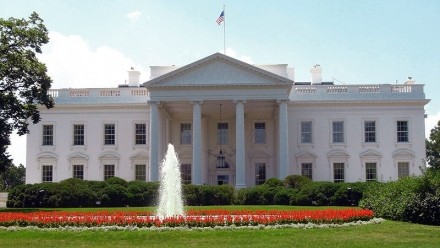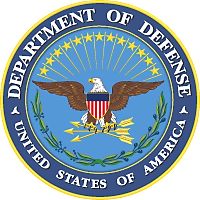
Champions of Change
Yesterday, the White House continued its practice of honoring people for being “Champions of Change” in their respective fields. Yesterday’s event honored military veterans that were making great strides in the field of alternative energy and climate resilience. The event included speeches by Denis McDonough, White House Chief of Staff; Secretary Moniz of the Department of Energy (DoE); Nancy Sutley, Chair of the White House Council on Environmental Quality; and Senator John Warner.
The opening remarks were delivered by McDonough in which he discussed the efforts the Obama Administration has undertaken to catalyze a shift to renewable energy. He mentioned Veteran Affairs (VA) programs that have given almost $790 million for businesses that deal with alternative energy.
The keynote address, delivered by Secretary Moniz, focused a lot on the role that the DoE and Department of Defense were doing and should continue to do in terms of energy security.
 He spoke about the need to emphasize the role nuclear power can play in domestic energy production. Specifically, he discussed the new technology associated with nuclear power, like small modular reactors (SMRs) which address a lot of the safety and financial concerns that politicians have with nuclear power.
He spoke about the need to emphasize the role nuclear power can play in domestic energy production. Specifically, he discussed the new technology associated with nuclear power, like small modular reactors (SMRs) which address a lot of the safety and financial concerns that politicians have with nuclear power.
Interspersed between the speakers were two panel discussions which included the various “Champions” speaking about their experiences in Iraq and Afghanistan and how they got the idea to come back home and start working to advance sustainability and alternative energy. For many, being on the front-lines exposed them to the real danger of energy dependence. For one, continued reliance on foreign oil meant petrodollars were going straight into the pockets of the groups they were fighting. But more directly, supply lines were always at risk creating a bad situation for troops on the ground.
One issue that all agreed on was the role that the military could play in swaying public consciousness toward the issues regarding climate change. The military is a highly respected institution and when veterans are seen supporting a cause, it is often met with little disagreement. It is similar to the American Security Project’s (ASP) Consensus for American Security: an initiative made up of influential military and national security leaders who have come together to provide consensus around the big strategic national security issues facing our country like energy and environmental security.
Later that night, a reception was hosted by the Truman National Security Project and Center for National Policy. Speakers included Katherine Hammack, Assistant Secretary of the Army for Installations, Energy, and Environment; Ray Mabus, Secretary of the Navy; and Sharon Burke, Assistant Secretary of Defense for Operational Energy.
Their remarks all centered on the need for the military to become more efficient and reliant on renewable energies for a host of reasons. Mabus specifically mentioned, for example, that Marine and Navy are dependent on liquid petroleum fuel, and if anything were to disrupt our supply, that would place our forces in a dangerous position. Furthermore, he called for the military to begin using more renewable energy, even if the costs are a bit higher in the short-term. Hammack spoke about the Army’s “Net Zero Initiative,” designed to balance the consumption and production of energy in the military.
A part of the event can be seen in the following video:







[…] Champions of Change Farhad Mirzadeh White House honors veterans advancing climate security and clean energy. […]